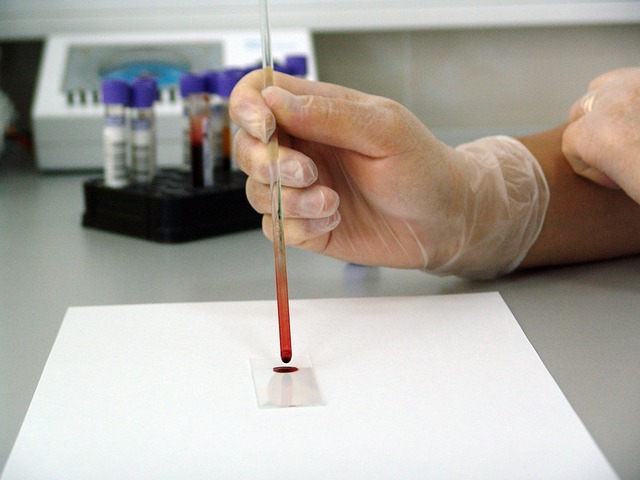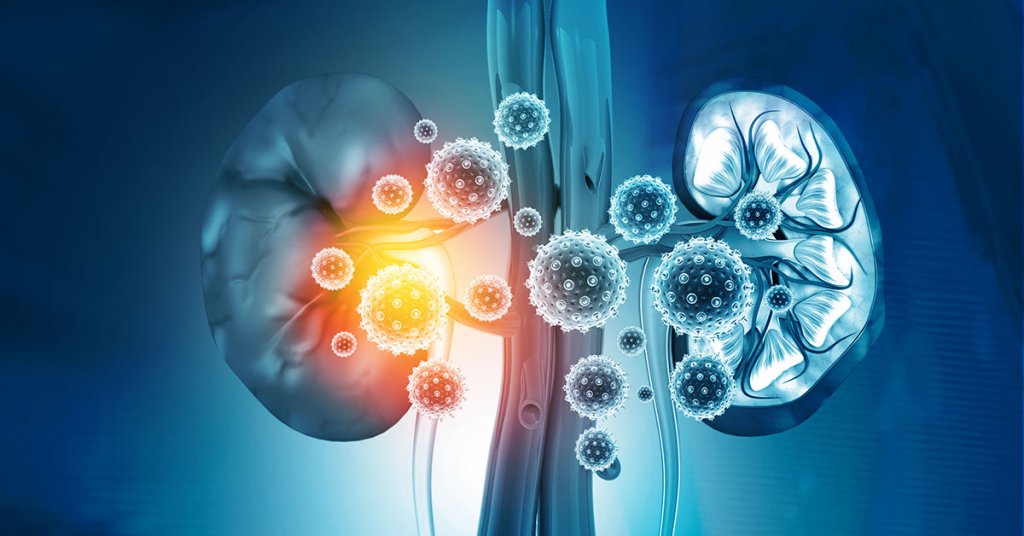Kidney failure refers to the inability of the kidneys to filter waste products from the blood. This condition can occur suddenly or gradually over time. Kidney failure is often caused by underlying medical conditions such as diabetes, high blood pressure, and autoimmune diseases that damage the kidneys.
Symptoms of kidney failure include decreased urine output, fluid retention in the legs and feet, nausea and vomiting, weakness, and fatigue. Treatment options for kidney failure include dialysis or a kidney transplant. Dialysis involves using a machine to filter waste products from the blood while a transplant involves replacing a damaged kidney with a healthy one.
Prevention measures for kidney failure include managing underlying medical conditions that can cause damage to the kidneys through lifestyle modifications such as maintaining a healthy weight, quitting smoking, and reducing alcohol intake. It’s important for individuals who are at risk of developing kidney disease or have been diagnosed with it to work closely with their healthcare provider to manage their condition effectively.
Causes
High blood pressure and diabetes are two of the most common causes of kidney failure. When a person has high blood pressure, the tiny blood vessels in their kidneys can become damaged over time. This damage can eventually lead to kidney failure, where the kidneys are no longer able to filter waste products from the body effectively.
Similarly, diabetes can also cause damage to the kidneys over time. High levels of sugar in the blood can put extra strain on the kidneys, leading to scarring and damage to these vital organs. If left untreated, this damage can progress to kidney failure and may require dialysis or a kidney transplant.
Other potential causes of kidney failure include certain medications, infections such as glomerulonephritis or pyelonephritis, polycystic kidney disease (an inherited disorder), lupus (an autoimmune disease), and other medical conditions that affect blood flow or oxygen supply to the kidneys. However, it is important to note that high blood pressure and diabetes are among the most common risk factors for developing chronic kidney disease and ultimately progressing toward end-stage renal disease (ESRD) or complete renal failure.
Symptoms
Symptoms of kidney failure can often be mild, making it difficult to detect in the early stages. One of the most common symptoms is fatigue, which can be caused by anemia resulting from decreased production of erythropoietin. Other symptoms may include swelling in hands and feet due to fluid retention, changes in urine output such as decrease or increase, nausea, and vomiting, loss of appetite and weight loss, and more pee.
As kidney function declines further, more severe symptoms may occur. Itchy skin can develop due to a buildup of waste products in the blood that is normally filtered out by the kidneys. Muscle cramps and restless legs syndrome may also arise due to imbalances in electrolytes like potassium and calcium. High blood pressure is another symptom that can signal kidney failure as well as an increased risk for heart disease or stroke.
It’s important to recognize these symptoms early on so that proper treatment can be administered before irreversible damage occurs. Monitoring your blood pressure regularly along with routine checkups with your healthcare provider will help identify any potential issues sooner rather than later.
Diagnosis
Blood and urine tests are an essential diagnostic tool for determining kidney failure. Blood tests can measure the levels of waste products such as creatinine and urea in the blood. These waste products accumulate in the body when the kidneys are not functioning correctly. In contrast, urine tests can measure protein levels, which is an early sign of kidney damage.
Imaging tests such as ultrasound, CT scan, or MRI may be used to diagnose kidney failure. These imaging techniques allow doctors to see inside the body and identify any abnormalities or changes in the size and shape of the kidneys. Additionally, imaging tests provide valuable information about blood flow to the kidneys that may indicate a blockage or obstruction.
In summary, blood and urine tests along with imaging techniques are essential diagnostic tools for identifying kidney failure. Early diagnosis is critical since it enables doctors to treat underlying conditions that cause kidney damage promptly. With proper treatment, many people with kidney failure can lead healthy lives without requiring dialysis or a transplant.

Treatment
Dialysis is a medical treatment that filters the blood of patients who have kidney failure. It is often recommended as a temporary measure while waiting for a kidney transplant. Dialysis can be done in two ways: hemodialysis and peritoneal dialysis. Hemodialysis involves using an artificial kidney machine to filter the blood outside the body, while peritoneal dialysis uses the lining of the abdomen to filter blood by infusing it with a solution.
Transplantation is another treatment option for people with kidney failure. This involves surgically placing a healthy kidney from either a deceased or living donor into the patient’s body. A successful transplant means that patients no longer need dialysis, and their new kidneys will function as normal kidneys do. However, finding a suitable donor can be challenging, and there are also risks associated with surgery and taking immunosuppressive drugs after transplantation to prevent rejection of the new organ.
Both dialysis and transplantation are viable treatment options for people with kidney failure. The choice between them depends on factors such as age, overall health condition, availability of donors, preferences, and other individual considerations. Patients should work closely with their healthcare team to determine which option is best suited for their needs before making any decisions regarding their care plan.
Medications used to treat kidney failure
In cases of kidney failure, medications are used to manage the symptoms and complications of the condition. One common medication used is erythropoietin, which stimulates red blood cell production to treat anemia often associated with kidney failure. Another medication is calcium supplements or phosphate binders, which help regulate mineral levels in the blood that can become imbalanced due to kidney failure.
Additionally, diuretics may be prescribed to alleviate excess fluid buildup in the body caused by reduced urine output from the kidneys. Medications such as angiotensin-converting enzyme (ACE) inhibitors or angiotensin receptor blockers (ARBs) may also be recommended to help control high blood pressure and protect the kidneys from further damage.
It’s important for individuals with kidney failure to work closely with their healthcare provider and follow their prescribed medication regimen. Failure to take medications as directed could worsen symptoms and potentially lead to further complications.
Prevention
Kidney failure can be a devastating condition that affects the body’s ability to filter waste products from the blood. While there are many medical treatments available for kidney failure, prevention is always better than cure. One of the best ways to prevent kidney failure is to adopt healthy lifestyle habits.
The first step in preventing kidney failure is to maintain a healthy diet. Eating a balanced diet that includes plenty of fruits and vegetables, whole grains, lean proteins, and low-fat dairy products can help keep your kidneys healthy. It’s also important to stay hydrated by drinking plenty of water throughout the day.
Another important habit to adopt is regular exercise. Exercise not only helps maintain a healthy weight but also improves blood pressure control and reduces the risk of diabetes – both of which can contribute to kidney damage over time. Finally, avoiding tobacco use and limiting alcohol consumption can also help protect your kidneys from damage.
By adopting these simple lifestyle habits, you can reduce your risk of developing kidney failure and enjoy better overall health in the long term. Remember: prevention is always better than cure!
Conclusion
In conclusion, early detection and management of kidney failure are crucial for preventing complications and improving outcomes. The earlier the condition is diagnosed, the better the chances are for effective treatment. Regular monitoring of kidney function through blood tests can help detect any changes in kidney function before symptoms appear.
Additionally, managing underlying conditions such as hypertension and diabetes can also prevent or delay the onset of kidney failure. Lifestyle modifications such as maintaining a healthy diet, exercising regularly, avoiding smoking, and limiting alcohol intake can also play a significant role in preventing or slowing down kidney disease progression.
Overall, it is important to prioritize regular check-ups with your healthcare provider to monitor your kidney health and manage any underlying conditions that may increase your risk for developing kidney failure. Early detection and management can ultimately lead to better quality of life outcomes for those living with this condition.
Published on June 19, 2023 and Last Updated on October 22, 2025 by: Mayank Pandey
Get real time update about this post category directly on your device, subscribe now.


